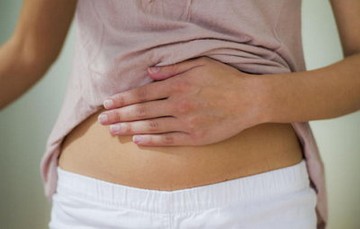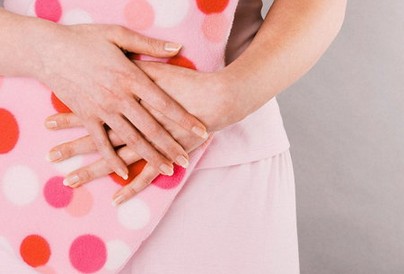First Period After Pregnancy

Contents:
- Why There is No Menstruation After Birth?
- When Does the First Period After the Birth Start?
- How Does the Menstruation After Birth Recovery Occur?
- Signs of Trouble: When to See a Doctor
What to Expect Your First Period after Pregnancy
The return of menstrual cycle after the pregnancy is the thing to that every new mom has to pay close attention. The menstruation is one of the main criteria for evaluating the woman health status.
Why there is No Menstruation After Birth?
After birth a drastic change in the hormones occurs- the woman's body begins to function in new conditions. The body starts to secrete prolactin, the hormone responsible for lactation. This hormone is to “blame” in physiological amenorrhea, the absence of menstruation after the birth. High levels of prolactin inhibit cyclic processes in the ovaries and ovulation does not occur. That is the way the nature takes care of the woman and her baby: all resources are applied at feeding the baby and the conditions for a new conception are not favorable.
When Does the First Period After the Birth Start?
The time of first menstruation after the birth depends on many factors: woman’s body peculiarities, lactation and stress.
- If the woman breastfeeds the baby, this means that the baby consumes only breast milk, the period is unlikely to start.
- If the woman continues to breastfeed for a year or more, the amenorrhea ends, and the menstruation returns even while lactating.
- If the woman, for some reason, doesn't breastfeed the baby, the first ovulation occurs within 9-11 weeks, this means that the first period will come within 11-13 weeks, or within 3 months on average. In such cases, the first menstrual cycle-is anovulatory, this means that the menstruation occurs without prior ovulation.
- If you haven’t enough milk for breastfeeding, and the baby is on mixed feeding (breast milk + milk mixtures), the menstruation usually comes within 4-5 months.
- The way of delivery does not significantly affect the time when the menstruation returns after childbirth. Thus, the time of the return of menstruation is similar for both caesarian section and natural delivery; it all depends on breastfeeding. The exception is obstructed labour including postpartum hemorrhage, endometritis, sepsis, and other serious diseases. Such conditions inhibit normal involution (recovery) of the uterus, so the first menstruation is most likely to return later than expected.
All figures presented above are just guidelines; they may vary depending on the pregnancy. Each particular woman may have her menstruation returned in due terms that are usually close to generally accepted standards.
How Does the Menstruation After Birth Recovery Occur?

As a rule, after delivery, the menstruation is characterized by its physiological nature: it is regular, has normal intensity and duration. A slight deviation from the norm, shortening or lengthening the first periods, more abundant or, on the contrary, light menstrual bleeding is admissible. However, you’d better inform your doctor about these deviations. He can determine whether the abundant menstruation after the birth is a symptom of endometrial hyperplasia or is it just your individual feature.
The period after the pregnancy may change, and become longer, for example. The main thing is that it was within the normal duration. The norm is the regular repetition of menstrual bleeding within 21-34 days, the duration of bleeding 4-6 days, and the amount of discharged blood 20-80 ml (6 tablespoons).
The menstruation after the birth may acquire a more physiological character than it had before the pregnancy. If previously the woman suffered from menstruation pains, postpartum menstruation may be painless. It is connected to the change of the uterine location in the pelvic cavity, which doesn’t impede the blood outflow. In addition, the frequency of menstruation often becomes more correct, it starts coming "to the day".
Signs of Trouble: When to See A Doctor
Firstly, it is highly desirable to see the doctor after the first period, regardless of the duration and type of bleeding. The doctor will detect the state of the uterus and assess its size and status of the ovaries. Secondly, there are certain signs that testify of an abnormality.
You should inform your doctor about them:
- Profuse menstruation after childbirth can be a symptom of various diseases: endometriosis, adenomyosis, endometrial hyperplasia, as well as the sign of hormonal disorders.
- Bleeding shortly after the separation of lochia (this is normal postpartum discharge within 5-6 weeks) may be attributed to the presence in the uterus of the ovum remnants including the placenta or its membranes. In this case, bleeding is accompanied by an unpleasant odor.
- Delay of menstruation after childbirth or its absence can also be a symptom of a serious disease, usually caused by the high prolactin levels in the blood. If the woman doesn’t breastfeed for 2-3 months already and the menstruation doesn’t return, she should consult a gynecologist. The same advice applies to excessive length of the period as well as to the light menstruation flow.
- If the menstruation after childbirth is irregular, this means that something is wrong in the body; the restoration of regular menstrual activity is obstructed that is usually associated with hormonal disorders.
It should be remembered that the overall status of woman affects the reproductive system recovery after childbirth. The woman after childbirth should pay particular attention to the state of the health, take vitamins, make special exercises, and sleep and rest enough. Correct regimen and rational nutrition will ensure the recovery of cyclic hormonal activity and regular menstrual periods.
Sir my 2 baby born before 6 month now I m waiting for first period.how long it will take?